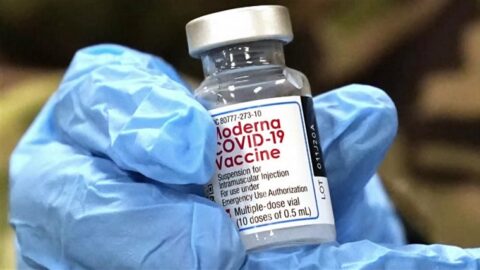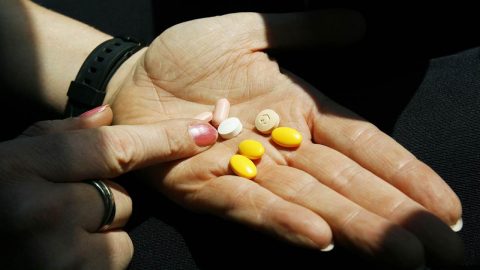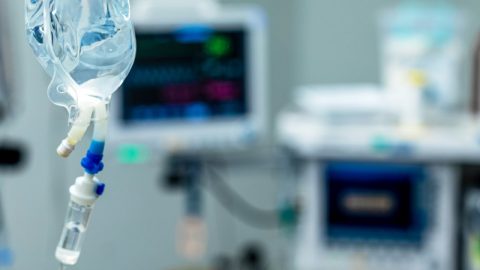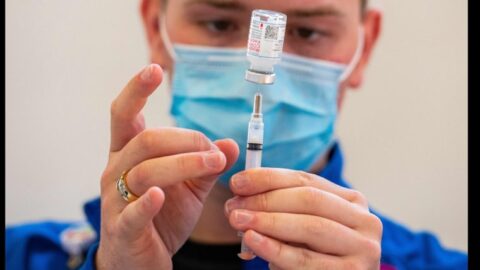How is your Dry January going? If you’ve managed to abstain from alcohol so far, pat yourself on the back. But if your plans already have been derailed a time or two, don’t beat yourself up, experts say: When it comes to quitting drinking, a slip is not a fail.
“It certainly doesn’t mean all is lost,” said Dr. Brian Hurley, a Los Angeles addiction specialist and president-elect of the American Society of Addiction Medicine. “People can absolutely get back on track.”
Started in 2013 by a British charity called Alcohol Change U.K., the Dry January challenge is to see if you can go alcohol-free for the month, beginning the new year with a fresh, healthier start.
But even if you haven’t succeeded 100 percent at Dry January, there are benefits to giving it a good try, Hurley and others say.
“I wouldn’t look at slipping up as being unusual or representing a failure in any way,” Hurley said. “I might think about it as part of learning. So if someone had intended to not drink during the month of January, and there was a situation in which they drink, that’s a learning opportunity. They can figure out what to put in place to either avoid that situation in the future or when faced with that situation again, find an alternative to drinking.”
Those who slip up during Dry January still may be engaging in the important process of re-evaluating their relationship with alcohol, said addiction expert George Koob, director of the National Institute on Alcohol Abuse and Alcoholism.
They may start to notice that their bodies feel better when they don’t drink — or when they drink less — and that can provide extra motivation to make lasting changes in their alcohol consumption, whether that’s stopping drinking or drinking more moderately, according to Koob.
“If you feel better when you’re not drinking, your body is trying to tell you something, and you should listen to your body,” he said.
The U.S. Dietary Guidelines for Americans recommend no more than two alcoholic drinks a day for men and one for women. A standard drink is considered 12 ounces of beer, 5 ounces of wine or 1.5 ounces of spirits. Heavy alcohol use is defined as men drinking more than four drinks a day or more than 14 drinks per week. For women, heavy drinking is more than three drinks a day or more than seven drinks per week.
People hoping for a Dry January who slip up should be kind to themselves and “keep trying,” Koob advised.
“Somebody who has a small slip, even a big slip, but they’re re-evaluating their relationship with alcohol, all in all it’s a good thing,” Koob said. “I don’t think one should catastrophize a slip. Kind of go around the obstacle at that point and see if you can sustain a little longer the next time.”
Pandemic stress and self-medicating
If Dry January seems particularly challenging this year, it may be related to the weight of the ongoing pandemic, with virus fears, social isolation, economic woes and more. Managing drinking can be particularly hard during stressful times, and studies are showing an increase in alcohol consumption during the pandemic.
“Somewhere around 30 percent of the population seems to be drinking more, and those who are drinking more are drinking to cope with stress,” Koob said.
Dr. Kevin Wandler, a psychiatrist in Fort Lauderdale, Florida, and chief medical officer of The Recovery Village drug and alcohol rehab treatment centers across the country, said he’s hearing many patients citing pandemic stress as a factor in their drinking.
“Self-medicating with alcohol is legal, but it certainly can be a health problem,” he said.
Too much alcohol can cause a range of medical and personal issues. Intoxication carries well-known immediate health risks — including falls or other injuries, alcohol poisoning and impaired judgment that can lead to risky sex or drunken driving and traffic accidents. Too much drinking also can interfere with a good night’s rest and, as many know, cause a miserable hangover the next morning.
Over the long term, excess alcohol consumption not only can lead to alcohol use disorder but potentially to a lengthy list of other negative health effects, including heart and liver problems, some cancers, pancreatitis and a weakened immune system.
But reducing alcohol consumption — even if a person doesn’t quit altogether — carries health benefits, Wandler said. The positives can be seen pretty quickly, and small successes may lead to bigger ones.
“Especially if you’re a heavier drinker, giving up alcohol even for two weeks will have a positive impact on your blood pressure, your heart, your mental well-being,” he said.
The NIAAA has a Rethinking Drinking website with tips to help people reduce their drinking and gauge whether they might have an alcohol use disorder. People with serious drinking problems can experience potentially dangerous withdrawal symptoms if they quit cold turkey, so medical supervision is advised.
Wandler emphasized that change can take time, so people who slip up with their Dry January goals should try to “reboot” tomorrow.
“Don’t be so hard on yourself, especially if this is not what you’ve ever tried to do before,” he said. “Most of us aren’t that good at making lifestyle changes so quickly.”










Recent Comments